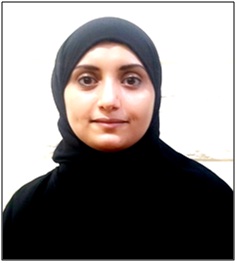MENOPAUSAL SYMPTOMS ON THE QUALITY OF LIFE AMONG YEMENI WOMEN IN SANA’A CITY
Keywords:
Menopausal symptoms, Menopause Specific Quality of Life Questionnaire (MENQOL), Quality of life (QOL), Yemeni womenAbstract
Background: Menopause is a physiological phenomenon that can strongly affect the quality of life (QOL) of women.
Objectives: To analyzes the menopausal associated symptoms among contributors and their effect on quality of life. To also investigate sociodemographic factors affecting QOL.
Methods: A cross-sectional study was conducted among 188 perimenopause and menopausal Yemeni women selected randomly from outpatient clinics of the main public hospitals in Sana'a, Yemen. Data was acquired using the Menopause-Specific Quality of Life (MENQOL) questionnaire.
Results: The mean age at menopause was found to be 47±3.4. The majority of participants were postmenopausal (71.27 %), and (71.80 %) were married. The most prevalent symptoms were aching muscles and joints (55%), dissatisfaction with personal life (37.7%), night sweat (35%) and avoidance of intimacy (30%). The total scores of menopausal quality of life for each MENQOL domain revealed that the maximum mean score was recorded for physical domain (42.81± 17.87), followed by psychosocial (14.11±5.72), then sexual (6.93±2.46), and finally vasomotor domain (4.78±3.10).
Conclusion: The physical and psychosocial domains had upper mean MENQOL scores than vasomotor and sexual domains. There is a need to educate women about menopause and its symptoms and the need to seek medical advice from specialists and find a center for that.

Peer Review History:
Received: 6 April 2021; Revised: 8 May; Accepted: 11 June; Available online: 15 July 2021
Academic Editor: Ahmad Najib , Universitas Muslim Indonesia, Makassar, Indonesia, ahmad.najib@umi.ac.id
, Universitas Muslim Indonesia, Makassar, Indonesia, ahmad.najib@umi.ac.id
Reviewers:
Dr. Gulam Mohammed Husain , National Research Institute of Unani Medicine for Skin Disorders, Hyderabad, India, gmhusain@gmail.com
, National Research Institute of Unani Medicine for Skin Disorders, Hyderabad, India, gmhusain@gmail.com
Dr. Salfarina Ramli , Department of Pharmacology and Pharmaceutical Chemistry, Faculty of Pharmacy, Universiti Teknologi MARA, 42300 Puncak Alam, Selangor, Malaysia. salfarina2892@uitm.edu.my
, Department of Pharmacology and Pharmaceutical Chemistry, Faculty of Pharmacy, Universiti Teknologi MARA, 42300 Puncak Alam, Selangor, Malaysia. salfarina2892@uitm.edu.my
Dr. Vanina Doris Edo’o , University of Yaounde I, Yaounde, Cameroun, vanina_edoo@yahoo.com
, University of Yaounde I, Yaounde, Cameroun, vanina_edoo@yahoo.com
Dr. Ahmed Mohammed Al-Haddad , Department of Medical Laboratories, College of Medicine and Health Sciences, Hadhramout University, Al-Mukalla, Yemen, alhaddadster@gmail.com
, Department of Medical Laboratories, College of Medicine and Health Sciences, Hadhramout University, Al-Mukalla, Yemen, alhaddadster@gmail.com
Downloads

Published
How to Cite
Issue
Section

This work is licensed under a Creative Commons Attribution-NonCommercial 4.0 International License.









 .
.